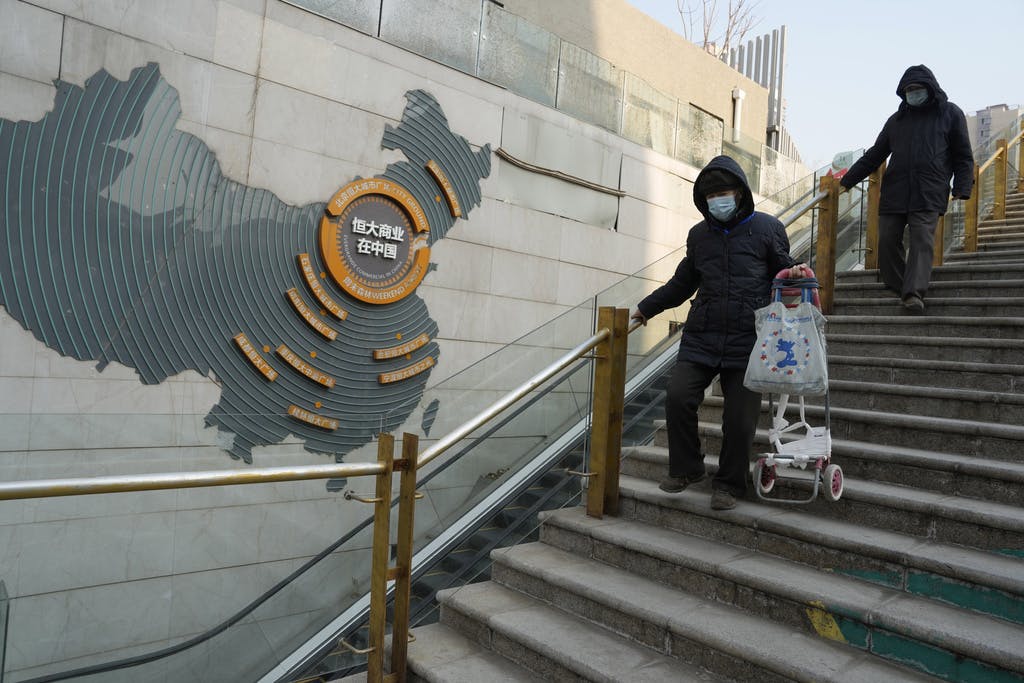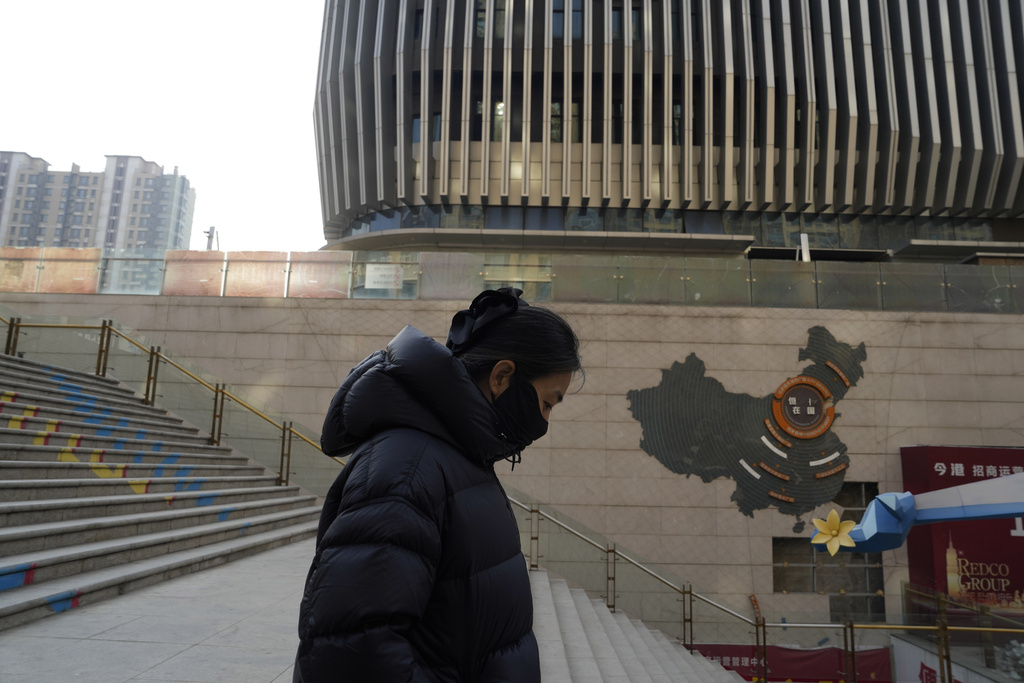Real Estate Giant China Evergrande, With $300 Billion in Debts, Is Ordered To Liquidate
It’s unclear how the liquidation order will affect China’s financial system, but the collapse will hurt some families who invested their life savings.

HONG KONG — A Hong Kong court is ordering the world’s most heavily indebted real estate developer, China Evergrande, to undergo liquidation following a failed effort to restructure $300 billion owed to banks and bondholders that fueled fears about Communist China’s rising debt burden.
“It would be a situation where the court says enough is enough,” Judge Linda Chan said Monday. She said it was appropriate for the court to order Evergrande to wind up its business given a “lack of progress on the part of the company putting forward a viable restructuring proposal” as well as Evergrande’s insolvency.
China Evergrande Group is among dozens of Chinese developers that have collapsed since 2020 under official pressure to rein in surging debt the ruling Communist Party views as a threat to China’s slowing economic growth.
Yet the crackdown on excess borrowing tipped the property industry into crisis, dragging on the economy and rattling financial systems in and outside China.
Chinese regulators have said the risks of global shockwaves from Evergrande’s failure can be contained. The court documents seen Monday showed Evergrande owes about $25.4 billion to foreign creditors. Its total assets of about $240 billion are dwarfed by its total liabilities.

“It is indisputable that the company is grossly insolvent and is unable to pay its debts,” the documents say.
About 90 percent of Evergrande’s business is in mainland China. Its chairman, Hui Ka Yan, who is also known as Xu Jiayin, was detained by authorities for suspected “illegal crimes” in late September, further complicating the company’s efforts to recover.
It’s unclear how the liquidation order will affect China’s financial system or Evergrande’s operations as it struggles to deliver housing that has been paid for but not yet handed over to families that put their life savings into such investments.
Evergrande’s Hong Kong-traded shares plunged nearly 21 percent early Monday before they were suspended from trading. Yet Hong Kong’s benchmark, the Hang Seng index, was up 0.9 percent, and some property developers saw gains in their share prices.
China’s largest real estate developer, Country Garden, initially gained nearly 3 percent but was flat. Sunac China Holdings rose 2.4 percent.
The Shanghai Composite index dropped 0.9 percent, while Shenzhen’s A-share index fell more than 2 percent.
The Hong Kong court gave Evergrande a reprieve in December to allow it time to “refine” a new debt restructuring plan.
Yet Judge Chan said Evergrande “has not demonstrated that there is any useful purpose for the court to adjourn the petition — there is no restructuring proposal, let alone a viable proposal which has the support of the requisite majorities of the creditors.”
In remarks published online, she lambasted the company for putting out only “general ideas” about what it may or may not be able to put forward as a restructuring proposal. The interests of creditors would be better protected if Evergrande is wound up by the court, she said.
A lawyer representing an ad hoc group of creditors, Fergus Saurin, said Monday he was not surprised by the outcome.
“The company has failed to engage with us. There has been a history of last-minute engagement which has gone nowhere,” he said.
Mr. Saurin said that his team worked in good faith during the negotiations. Evergrande “only has itself to blame for being wound up,” he said.
One of two liquidators appointed by the court from global services firm Alvarez & Marsal, Tiffany Wong, said that their priority was to ensure that “as much of the business as possible [is] retained, restructured and remains operational.”
“We will pursue a structured approach to preserve and return value to the creditors and other stakeholders,” Ms. Wong said. That includes considering any viable restructuring proposals, she said.
Evergrande’s chief executive, Shawn Siu, told Chinese news outlet 21Jingji that the company feels “utmost regret” at the liquidation order.
He emphasized that the order affects only the Hong Kong-listed China Evergrande unit and that the group’s domestic and overseas units are independent legal entities. Mr. Siu said that Evergrande will strive to continue smooth operations and deliver properties to buyers.
Real estate drove China’s economic boom, but developers borrowed heavily as they turned cities into forests of apartment and office towers. That has helped to push total corporate, government, and household debt to the equivalent of more than 300 percent of annual economic output, unusually high for a middle-income country.
Evergrande first defaulted on its financial obligations in 2021, just more than a year after Beijing clamped down on lending to property developers to cool a property bubble.
As a former British colony, Hong Kong operates under a legal system that is separate from, though increasingly influenced by, communist-ruled China. In some cases, mainland courts have recognized bankruptcy rulings in Hong Kong, but analysts say Evergrande’s is something of a test case.
The managing director at Kaiyuan Capital, Brock Silvers, said the liquidation order was likely to have more of an immediate impact on foreign investors and their confidence in China’s financial markets than on Evergrande’s operations in mainland China.
“So onshore, Evergrande tomorrow will look a lot like Evergrande yesterday, there won’t be a lot of noticeable difference,” he said.
Regulators need to restructure Evergrande and other struggling property developers, but it will be a complex and difficult process, the director of the China Studies Center at the University of Sydney, David Goodman, said.
“If the government could see simple answers to these problems, it would have reached them two to three years ago,” Mr. Goodman said.
